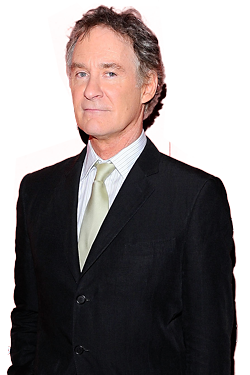
In the film adaptation of Jonathan Ames’s novel The Extra Man, which opened in New York and L.A. this weekend, Kevin Kline portrays Henry Harrison, a cantankerous New Yorker (who’s made a living of escorting wealthy, lonely women around town) in need of a roommate. He takes in a young New Jersey refugee named Louis Ives (played by Paul Dano) and initiates him into a world of old New York aristocracy. Vulture caught up with Kline last week at the Crosby Hotel, where he spoke on the difference between an “extra man” and a “wing man,” the essentials to public urination, and his own use of audiobooks to get into character.
First of all, what’s the difference between an “extra man” and a “wing man”?
Isn’t a wing man — and this is contemporary parlance, which I have very little patience for — but isn’t a wing man when someone goes out to pick up girls and it’s sort of the guy that says, “Hey, my friend over there … ” The guy that has “your back.” Is that what it is?
It is.
So a wing man is …I don’t want to say pimp … but someone who “procures.” Has your back, sides, and fronts.
Which is different than an extra man.
An “extra man,” as the character defines it, is when there needs to be boy-girl-boy-girl seating at a table. Women live longer than men. And when the husband dies, there’s a need for filling the seat. Of course, what I love about Henry Harrison is that he’s taking the notion of being a supplementary seat filler and making it into an art. “I’m not extra, I’m crucial, filled with wit and intelligence.” It was always that, always this bohemian, intellectual, literate lifestyle and his forthrightness, so he becomes a trusted ally to these women.
What was your favorite part about playing Henry?
There wasn’t a scene that I liked more than another. Whatever scene he’s in, he’s going to say or do something so outrageous and unpredictable and original. At times, seemingly arbitrary. He’s a survivor, but he makes his survival not just survival — it’s done with such flair and style and panache, that his spirit is probably what inspires or makes him admirable for Louis. And he’s smart enough to not pay for the opera, “but you’ve got to have the opera.”
Henry is very much Louis’s mentor.
It’s very rare to see that male mentor relationship onscreen nowadays. In fact, when I read it, it reminded me of Midnight Cowboy. He’s the kid coming to the city and it’s, “I’ll show you my New York and how to survive.” But there’s something about his desperation.
There’s a scene in which you teach Louis how to urinate in the street without being noticed — seems like that could be a great thing to know how to do around here.
A great thing?
Well, it could come in handy.
Well, actually unlike places like Paris, there is no place to pee around here in New York City. So you’re right. Starbucks is it. I think they pride themselves in that. “Come to Starbucks, come pee in our establishment.” No, they think of themselves as purveyors of fine coffees. But when you got to go, you got to go. Cab drivers who spend their days driving around, what do they do? But you need not only a raincoat, but you need a raincoat that has those fake pockets that go down, and go around. It’s funny, the one they gave me didn’t have that. But I had one. So that’s my raincoat in the scene. It’s an old raincoat, but it had the right pockets. It’s doable. It helps if it’s raining. That night we shot it, there was a mist. But rain is not essential.
I heard that you got the dialect of the character down by listening to the audiotapes of the book.
Yeah [sarcastically]. I knew how this guy sounded. He’s a man of the theater and I am a man of the theater. I was classically trained, I was taught how to speak well! In fact, Jonathan said in the book that he sounds British at times, but he’s not. Today my driver here, who’s Colombian, said, “Are you American or British?” I said, “American, but I use consonants occasionally.” [Pause.] Okay, yeah, I learned it from Jonathan doing it on the fucking audiotape. I get the audiotape whenever I can of the writer reading his own work to get the voice of the character. Bastard. He wants to take all the credit, doesn’t he! That’s the actor’s job, to take all the credit! And anything that doesn’t work, blame the director!




